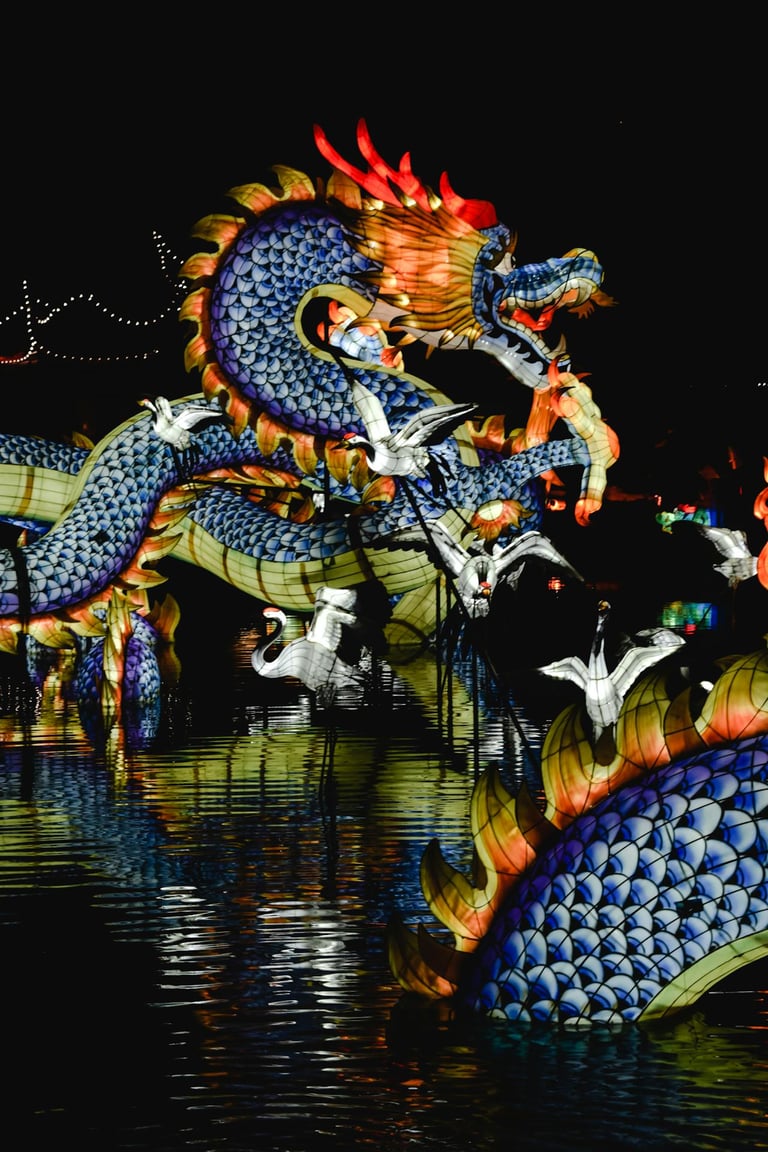Dumpling Festival and Chinese Dragon Boat Festival
Introduction:
In the rich tapestry of Chinese cultural celebrations, two festivals stand out as vibrant and significant expressions of tradition and community – the Dumpling Festival and the Chinese Dragon Boat Festival, also known as Duanwu Festival. These festivals, celebrated with gusto and fervor, offer a fascinating blend of culinary delights, ancient rituals, and the communal spirit that defines Chinese cultural heritage.
Chinese Dragon Boat Festival (Duanwu Festival):
The Chinese Dragon Boat Festival, commonly known as Duanwu Festival, is a time-honored celebration that dates back over 2,000 years. Falling on the 5th day of the 5th month of the lunar calendar, usually in June, this festival commemorates the life and death of the revered poet Qu Yuan. Legend has it that Qu Yuan, a minister and poet during the Warring States period, drowned himself in the Miluo River as an act of protest against corruption. Villagers raced out in boats to save him, beating drums to scare away fish and dropping dumplings into the water to prevent them from eating Qu Yuan's body.
The centerpiece of the Dragon Boat Festival is, unsurprisingly, the dragon boat races. Teams of rowers paddle fiercely in long, narrow boats decorated like dragons, creating a spectacle of skill, strength, and teamwork. The races symbolize the attempts to rescue Qu Yuan and are an integral part of the festival's traditions.
Dumpling Festival:
While the Chinese Dragon Boat Festival has its unique customs, the Dumpling Festival, also known as Zhongxiao Festival or Duanwu Festival in some regions, shares the same origins. The consumption of zongzi, pyramid-shaped glutinous rice dumplings wrapped in bamboo leaves, is a key tradition during both festivals. The Dumpling Festival, falling on the same day as the Chinese Dragon Boat Festival, places an emphasis on the culinary aspect, celebrating the art of making and sharing these delectable dumplings.
Dumplings: More Than a Culinary Delight:
Zongzi, the star of the Dumpling Festival, is a culinary masterpiece that comes in various regional styles across China and East Asia. The process of making zongzi involves filling bamboo leaves with glutinous rice, various ingredients such as meats, nuts, and beans, and then wrapping them into a pyramid shape before steaming or boiling. The result is a flavorful and aromatic dumpling with a satisfying chewiness, representing the perfect blend of taste and texture.
The art of making zongzi is often passed down through generations, with families coming together to create these culinary delights in the days leading up to the festival. It is a labor of love that not only preserves cultural traditions but also fosters a sense of togetherness and shared heritage.
Dragon Boat Festival Rituals:
The Dragon Boat Festival is not just about racing and eating dumplings; it also involves various rituals and customs. One common practice is hanging up medicinal herbs, such as mugwort and calamus, to ward off evil spirits and diseases. Another tradition is wearing colorful silk threads and amulets to protect against evil forces. Additionally, people often make and display colorful silk thread pouches containing protective talismans, herbs, and even small mirrors.
The festival is also associated with the custom of wearing a fragrant sachet, known as "xiong bao" or "medicine pouch," filled with herbs believed to ward off evil spirits and protect one's health. These sachets are often worn by children and hung on doors as a form of protection.
Dumpling Festival and Dragon Boat Festival in Modern Times:
While the origins of the Dragon Boat Festival and the Dumpling Festival are rooted in ancient folklore and traditions, these celebrations have adapted to the modern world. Today, Dragon Boat Festivals are not only celebrated in China but also in various communities around the globe, where dragon boat races and cultural events bring people together.
Similarly, the Dumpling Festival has evolved beyond a simple culinary tradition. Food enthusiasts and culinary artisans explore creative variations of zongzi, experimenting with different fillings and presentations. The Dumpling Festival has become an occasion not only for enjoying traditional flavors but also for embracing culinary innovation and creativity.
Culinary Tourism and Cultural Exchange:
Both festivals have become significant cultural touchpoints, attracting tourists and fostering cultural exchange. In cities around the world, communities with Chinese roots celebrate these festivals, sharing the richness of their traditions with diverse audiences. This not only promotes cultural awareness but also showcases the universal appeal of the Dragon Boat Festival and the Dumpling Festival.
Conclusion:
The Dumpling Festival and the Chinese Dragon Boat Festival, with their roots in ancient folklore, have seamlessly transitioned into modern celebrations that transcend geographical boundaries. These festivals, steeped in tradition and culinary delights, showcase the enduring spirit of Chinese culture and the power of communal celebrations. As dragon boat races ripple across waters and the aroma of steaming zongzi fills the air, these festivals continue to unite people, fostering a sense of shared heritage and appreciation for the vibrant tapestry of Chinese traditions.


Photo by Eva Bronzini: https://www.pexels.com/photo/dragon-festival-during-nighttime-6068494/
The Dragon Boat Festival, one of the four traditional Chinese festivals, was the first to be inscribed on UNESCO's List of Intangible Cultural Heritage.
Address
Soan Garden, Islamabad
Pakistan
Contacts
WhatsApp: +92-321-9012647
Email: shafqat@foodandfestivals.com